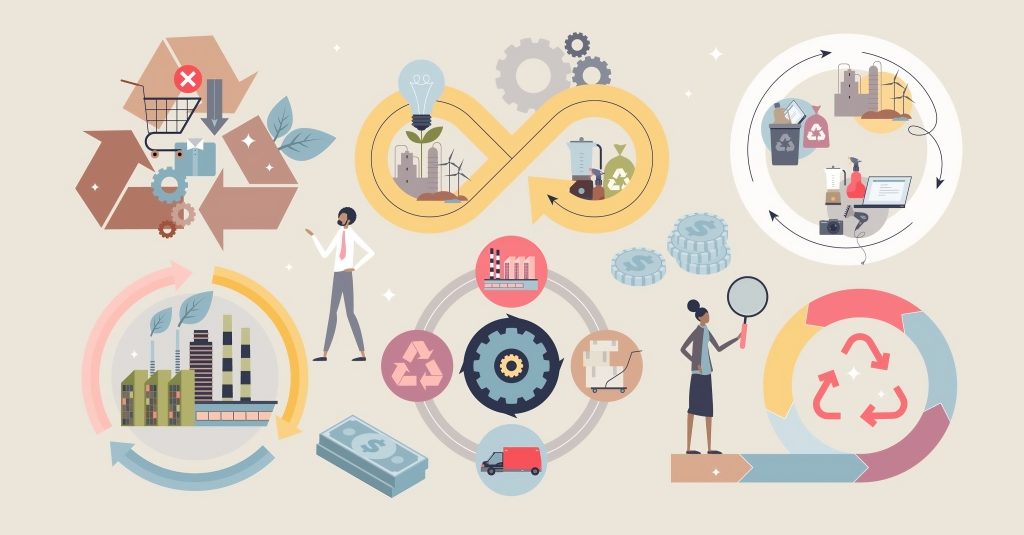Freelance Economy 2.0 – The Transition Towards a Sustainable Future

Freelance Economy 2.0 - The Transition Towards a Sustainable Future
Introduction:
The freelance economy has experienced a significant transformation over the years. From being a niche alternative to traditional employment, it has evolved into a thriving ecosystem with global reach and impact. In this blog, we delve into the rise of the Freelance Economy 2.0 and explore how it is transitioning from a mere gig-based economy to a more sustainable and robust model, reshaping the way we work and do business.
The Gig Economy and Its Challenges:
In the early 2000s, the freelance economy began to take shape, driven by technological advancements, such as the internet and digital platforms. Freelancers offered their services on online marketplaces, connecting with clients globally. Initially, the focus was on short-term gigs and one-off projects, offering businesses cost-effective solutions for specific tasks.
The Gig Economy and Its Challenges:
The freelance economy’s first iteration, often referred to as the gig economy, was characterized by short-term, project-based work. While it provided flexibility for freelancers and quick solutions for businesses, it faced challenges such as job insecurity, lack of benefits, and potential exploitation of freelancers due to the absence of labor protections.
The Transition to Freelance Economy 2.0:
Recognizing the limitations of the gig-based model, the freelance economy has been evolving into what we now refer to as Freelance Economy 2.0. This transition is marked by several key developments:
- Professionalization of Freelancers: Freelancers are increasingly seen as skilled professionals rather than just gig workers. With specialized expertise, they offer valuable services, positioning themselves as vital assets to businesses.
- Long-term Collaborations: Freelancers are moving away from one-off projects to establish long-term collaborations with clients. Building lasting relationships allows freelancers to create a stable income stream and clients to access reliable talent.
- Diversification of Services: Freelancers are expanding their service offerings, providing a broader range of skills and services that cater to different business needs. This diversification enhances their marketability and adaptability in an ever-changing business landscape.
- Focus on Quality: Freelancers now prioritize delivering high-quality work to ensure client satisfaction and establish a positive reputation. Positive reviews and referrals become crucial for attracting new clients in this competitive landscape.
Technological Advancements Facilitating the Shift:
Technology plays a pivotal role in shaping Freelance Economy 2.0. Advanced digital platforms and AI-driven tools enable seamless collaboration, secure payments, and efficient project management. Freelancers can now work remotely with clients across the globe, breaking geographical barriers and accessing a more extensive pool of opportunities.
The Impact on Businesses:
As the freelance economy matures, businesses are embracing the advantages of hiring freelancers. They gain access to specialized skills without committing to full-time employment, reducing overhead costs and improving project flexibility. This shift towards hiring remote freelancers also contributes to a more diverse and inclusive workforce.
Challenges to Overcome:
While the Freelance Economy 2.0 presents numerous opportunities, challenges persist. Freelancers may face issues related to fair compensation, payment delays, and the need for a reliable safety net. Policymakers and industry stakeholders must work together to establish fair labor standards and provide freelancers with essential protections.
Conclusion:
The Freelance Economy 2.0 represents a significant step forward, revolutionizing the way we work and conduct business. With the professionalization of freelancers, long-term collaborations, diversification of services, and technological advancements, the freelance economy is transitioning into a sustainable and promising model. Businesses are benefiting from the flexibility and expertise freelancers offer, while freelancers enjoy increased opportunities and recognition for their valuable contributions. By addressing the challenges and fostering a supportive ecosystem, Freelance Economy 2.0 can continue to thrive and shape the future of work on a global scale.
For More Related Articles Browse Our Website Blogster.pk
For social Connection You can also Visit and follow our Social media Platforms
Facebook , Instagram, Linkedin, Pinterest, Quora, Twitter, Youtube.





